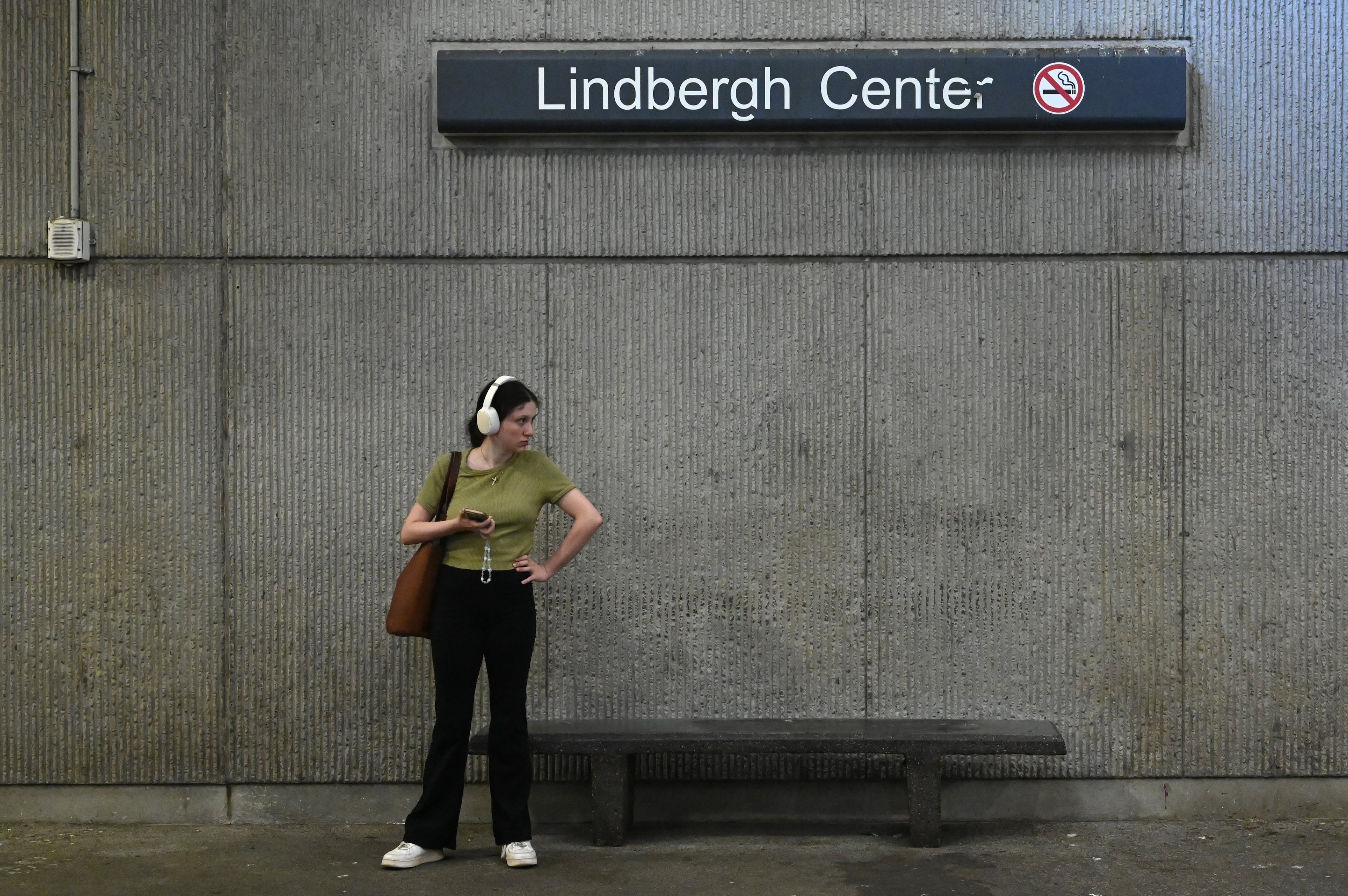Got juice? Atlanta’s apartment dwellers want EV chargers too

Many renters expect their apartment complexes to offer perks like gyms, pools and even pet spas.
Now electric vehicle charging stations are quickly joining that list.
EVs are gaining popularity, especially in urban centers, but they present new challenges for older apartment and condo developments that require retrofitting and new power sources to offer chargers.
While the number of EV adopters is growing, four-out-of-five plug-in car owners live in detached houses and charge their ride overnight at home. Nearly a third of Americans live in multifamily buildings, most of which were built before EVs burst on the scene as the potential climate-friendly alternative to gas guzzlers.
Hurdles to EV adoption include anxiety about where to plug-in as well as some concerns about expanding capacity within the nation’s electric grid.
The federal government is pumping billions of dollars into the nation’s charging network, providing public chargers along interstates. Experts say, however, the country can’t afford to overlook charging at apartments and parking decks.
“Everyone is saying, ‘Oh, we have to rebuild the entire gas station network in the country,’” Aaron Luque, CEO of EnviroSpark, told The Atlanta Journal-Constitution. “But if you can get a couple of stations installed in a multifamily property that are open to everybody, you’ve just opened up the possibility of EV ownership to thousands of people.”

EVs, which do not produce tailpipe emissions once on the road, comprised nearly 7% of all new vehicle sales so far this year, according to data from Cox Automotive Group, which like the AJC is owned by Atlanta-based Cox Enterprises. President Joe Biden’s administration aims for half of all new vehicle sales to be EVs by 2030.
Since 2017, the city of Atlanta has required new commercial and multifamily parking structures to make 20% of their parking spots EV capable, meaning they have access to the power capacity needed to handle charging stations. The city has a similar requirement for new single-family homes, which must also support EV charging.
Atlanta-based EnviroSpark is among the companies leading the charge to install enough plugs to nudge people toward EV ownership, regardless of where they live. The company has installed more than 7,000 chargers across the country and recently won a $500 million federal contract to bolster the Southeast’s charging network.
Luque said the focus on public chargers is commendable, but he said residential infrastructure is critical to meeting the country’s ambitious EV adoption goals.
“I lament a little bit that there hasn’t been as much of a focus on enabling ownership to 30-plus percent of the population,” he said.
‘Right now, it’s a luxury’
Landmark Properties, an Athens-based student housing developer, has included EV chargers in its new communities’ design since 2016, according to the company’s Executive Design Manager Giovanna Shimmin.
“Right now, it’s a luxury,” she said. “Your building is wanted because of it.”
Landmark offers charging access as a free amenity, but not all apartment owners see charging as a cost-free perk. Some tenants are charged flat fees to access chargers. Others use their community fob keys to unlock charging stations so they can be charged for every watt, much like how gas stations charge by the gallon.

David Aaronson, CEO of Houston, Texas-based Refuel Electric Vehicle Solutions, said he expects more apartment managers to bill residents as their power consumption increases.
“They’ve never gotten free gasoline when they go to their apartment complex,” he said during the National Association of Real Estate Editors conference in June. “People expect to pay to put fuel in your car, but people are giving (charging access) away.”
Aaronson said one charger within a multifamily development can meet the needs of about 17 EV owners. He said problems arise if residents need dedicated chargers or if the number of plug-in stations climbs into the hundreds at a single property.
“No apartment complex that exists today was built with the assumption you would need to charge 300 or 400 vehicles,” he said.
Powered-up incentives
It’s not cheap to build new electricity transformers or install rows of high-voltage chargers.
Luque said costs vary from a few hundred bucks to tens of thousands of dollars, depending on a property’s needs. He said incentives are critical to softening the blow.
“Basically how we survived for the first seven years was cobbling together incentives from different places, since people wanted this stuff for free,” Luque said.
Utility providers, such as Georgia Power, offer programs to help with the electricity needs of new EV chargers. The company’s Make Ready initiative offers incentives up to $200,000 to multifamily projects in areas that install at least six EV chargers.
In 2023, the program changed to only assist with publicly accessible chargers, omitting those in gated or restricted parking decks, which are common in urban apartment complexes.
“It almost forces you to put too many stations in places where people are less likely to want to charge,” Luque said. “… It’s kind of taking out one of the legs of what’s going to drive adoption.”
Georgia Power, which is overseen by the Public Service Commission, argues the program should focus on community charging needs rather than individuals.
John R. Seydel, Atlanta’s deputy chief sustainability officer, said the city is aggressively pursuing multiple programs to expand EV charging access, including a grant application earlier this year to place chargers at Fulton County libraries. The mayor’s Clean Energy Advisory Board also relaunched this year and is evaluating the city’s EV policies.
“It’s not a chicken or the egg thing here,” Seydel said. “You have to have EV charging to support electric vehicles and electric vehicle expansion.”


